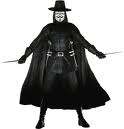KENNESAW, Ga - Several Kennesaw officials attribute a drop in crime in the city over the past two decades to a law that requires residents to have a gun in the house.
In 1982, the Kennesaw City Council unanimously passed a law requiring heads of households to own at least one firearm with ammunition.
The ordinance states the gun law is needed to "protect the safety, security and general welfare of the city and its inhabitants."
Then-councilman J.O. Stephenson said after the ordinance was passed, everyone "went crazy."
"People all over the country said there would be shootings in the street and violence in homes," he said. "Of course, that wasn't the case."
In fact, according to Stephenson, it caused the crime rate in the city to plunge.
Kennesaw Historical Society president Robert Jones said following the law's passage, the crime rate dropped 89 percent in the city, compared to the modest 10 percent drop statewide.
"It did drop after it was passed," he said. "After it initially dropped, it has stayed at the same low level for the past 16 years."
Mayor Leonard Church was not in office when the law was passed, but he said he is a staunch supporter of it.
"You can't argue with the fact that Kennesaw has the lowest crime rate of any city our size in the country," said Church, who owns a denture-making company in Kennesaw.
The author of the ordinance, local attorney Fred Bentley Sr., attributes at least some of the decrease in crime to the bill.
"I am definitely in favor of what we did," he said. "It may not be totally responsible for the decrease, [but] it is a part."
Although he is pleased with the outcome, Bentley said he was originally opposed to drafting the law.
"I didn't think it could be written in a constitutional fashion," he said. "Obviously, it was constitutional, because the American Civil Liberties Union challenged it in court and we won."
Jones said the ACLU challenged the law in a federal court just after it was passed. In response, the city added a clause adding conscientious objectors to the list of those exempt.
Although the law is now being credited with a drop in crime, Jones said that was not the law's original purpose. He also pointed out that Kennesaw did not have a big problem with crime before.
"The crime rate wasn't that high to start with. It was 11 burglaries per 1,000 residents in 1981," he said.
According to the Kennesaw Police Department, the city's most recent crime statistics show 243 property crimes per 100,000 residents in 1998, or .243 per 1,000.
The city's crime rate continues to be far below other metro Atlanta city's with similar populations, like Decatur. In 1998, Decatur recorded 4,049 property crimes per 100,000 residents.
Jones said one motivation for the council passing the ordinance had to do with publicity.
"It was done in response to a law passed by Morton Grove, Ill., outlawing gun ownership within the city limits," he said. "Several council members were upset Morton Grove had gotten a lot of attention with their ordinance so they decided to top them.
"They figured the gun ownership ordinance would knock that city right off the front pages. They were right."
Jones said the ensuing publicity surrounding the law has given Kennesaw worldwide name recognition.
"I have been to Australia and Europe and when I tell people I am from Kennesaw they recognize the name as the place that requires everyone to own a gun," he said.
But Stephenson said the issue was not publicity-driven but issue-driven.
"We believed in the right of people to own guns," he said.
Jones said he has sold 550 copies of a 1994 book about the first-of-its-kind law, "The Law Heard 'Round the World."
He said the law in its final form has many loopholes, so not everyone is required to own a gun.
"There are many outs," he said. "When you look at it, almost anyone could fit into one of the exempted groups."
Kennesaw Police Chief Dwaine Wilson said no one has ever been prosecuted under the ordinance.
Among those exempt are residents "who conscientiously oppose maintaining firearms as a result of beliefs or religious doctrine." Others exempt include the physically and mentally disabled, paupers and those convicted of a felony.
The law contains no clause addressing punishment for violating the law. If convicted, City Clerk Diane Coker said punishment would be determined by the general penalty clause of the Kennesaw Code Ordinance - probably a fine of about $100.
Jones said the unusual law has not deterred anyone from moving to Kennesaw.
"Our population has increased just like everyone's in Georgia in the past 20 years," he said. "The law really hasn't done any harm to the city's growth."
__________________

No comments:
Post a Comment